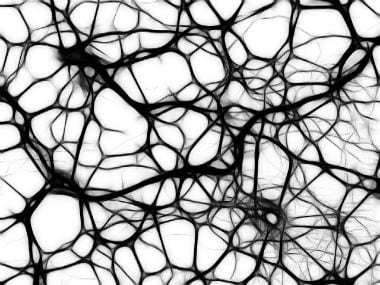One of the most important things the human brain does is to tell the body what to do and how to feel. An essential amino acid — glutamate — helps the brain perform this vital role, by ’exciting’ the neurons or brain cells, which then transmit messages between the brain and the body. A disturbance in this function — either because of excess glutamate or oversensitivity to it — can lead to ’excitotoxicity’ or cell death. Brian S. Meldrum of the Department of Clinical Neurosciences, Institute of Psychiatry, London, explained this in the year 2000 in ‘Glutamate as a Neurotransmitter in the Brain: Review of Physiology and Pathology’, published in The Journal of Nutrition (Oxford University Press). [caption id=“attachment_7270391” align=“alignleft” width=“380”]  Representative image. Image by Gerd Altmann from Pixabay[/caption] Excitotoxicity, he wrote, “may contribute to the brain damage occurring acutely after status epilepticus, cerebral ischemia or traumatic brain injury. It may also contribute to chronic neurodegeneration in such disorders as amyotrophic lateral sclerosis (ALS) and Huntington’s chorea”. In short, brain damage after an epileptic seizure or seizures that last for five minutes, ALS, brain stroke and Huntington’s disease are associated with excitotoxity. What is Huntington’s disease? Huntington’s disease (HD) is a genetic neurological disorder in which the brain cells (neurons) get progressively damaged. People suffering from Huntington’s gradually lose both their mental and physical abilities, and they usually die early. The prevalence of Huntington’s disease in India is lower than in Western countries but higher than in most Asian countries, with more cases reported in the southern states. Huntington’s disease occurs because of an autosomal dominant mutation - one’s risk for Huntington’s disease goes up by 50% if either parent has it. The gene for Huntington’s disease is present in everybody - it produces a protein known as Huntington that plays a role in the development of neurons. However, in those with Huntington’s disease, this gene is faulty and leads to impaired energy metabolism in brain cells and they produce much less energy than they need. Ironically, this metabolic defect makes the neurons kick so often and quickly that they start to ‘fry’. In medical parlance, this phenomenon is known as excitotoxicity - a portmanteau of the words excited and toxicity. The disease manifests in the prime years of life - affecting people aged 30 to 50. So far, there’s no cure for the disease. In late August, scientists at the Salk Institute for Biological Studies in California said they had tested a more advanced system for gene editing than the famous CRISPR on mice. In the future, their gene-editing tool - “intercellular linearized Single homology Arm donor mediated intron-Targeting Integration” or SATI as it is known for short, could help to ’edit’ or remove the genes that cause diseases like Huntington’s and progeria. The research was published in Cell Research, a peer-reviewed journal. Understanding excitotoxicity Our brain perceives and interprets information in the form of electrical and chemical signals. For the body to function optimally, it is important that these signals are transmitted at just the right speed and time. This is facilitated by chemical messengers known as neurotransmitters. These compounds travel within synapses — the gap between nerve cells — to pass on information from one cell to another. These messengers could be excitatory (exciting a brain cell to pass on signals) or inhibitory (stopping the nerve cell from passing on the signal). Excitotoxicity happens when our brain cells somehow start to be more sensitive to an excitatory neurotransmitter - in this case, glutamate which is responsible for controlling learning and memory functions. Excess glutamate or greater sensitivity to it makes the brain cells overexcited. This triggers a cellular process that eventually damages the neuron from the inside. A major part of this damage occurs in the areas that control voluntary movements, thoughts, memory and emotions. As the disease progresses, cell damage spreads to other parts of the brain. For instance, the part that controls the hormones. Symptoms and treatment of Huntington’s disease The symptoms of Huntington’s disease can be divided into three categories:
- Physical: These include involuntary jerks, difficulty in walking, swallowing, eating and speaking
- Cognitive: Difficulty focusing, absorbing new information and taking decisions
- Behavioural: Irritability, depression, social withdrawal, suicidal tendencies
Huntington’s is diagnosed through clinical symptoms and family history. There is no cure for HD so far. People who are diagnosed with HD usually die within 10 to 30 years. Death is more commonly due to pneumonia or injuries due to falling. Medications are given to patients to improve their quality of life and to resolve psychological and behavioural issues such as depression and irritability. Gene therapy, though expensive, is still the best way to avoid the disease. It involves identifying any HD gene mutation and removing it to prevent HD altogether. Research and clinical trials are on to find a cheaper, more accessible cure for Huntington’s disease. For example, reports from a recent clinical trial suggest that a drug — RO7234292 — could suppress the production of faulty Huntingtin protein in patients. Health articles in Firstpost are written by myUpchar.com, India’s first and biggest resource for verified medical information. At myUpchar, researchers and journalists work with doctors to bring you information on all things health. To know more on this topic, please visit https://www.myupchar.com/en/disease/huntingtons-disease


)

)
)
)
)
)
)
)
)



